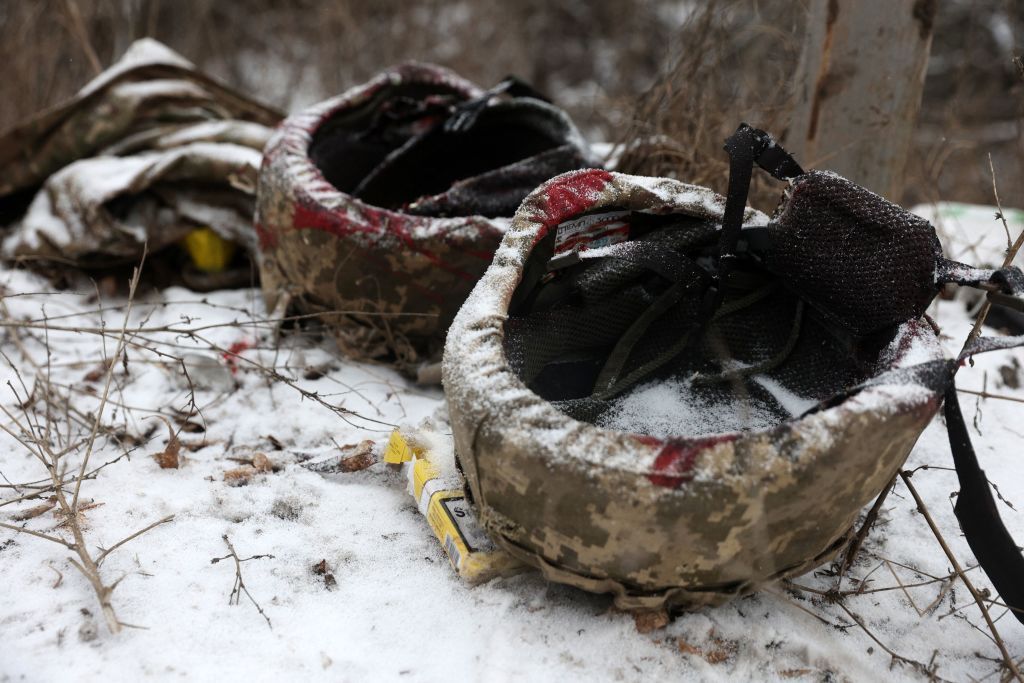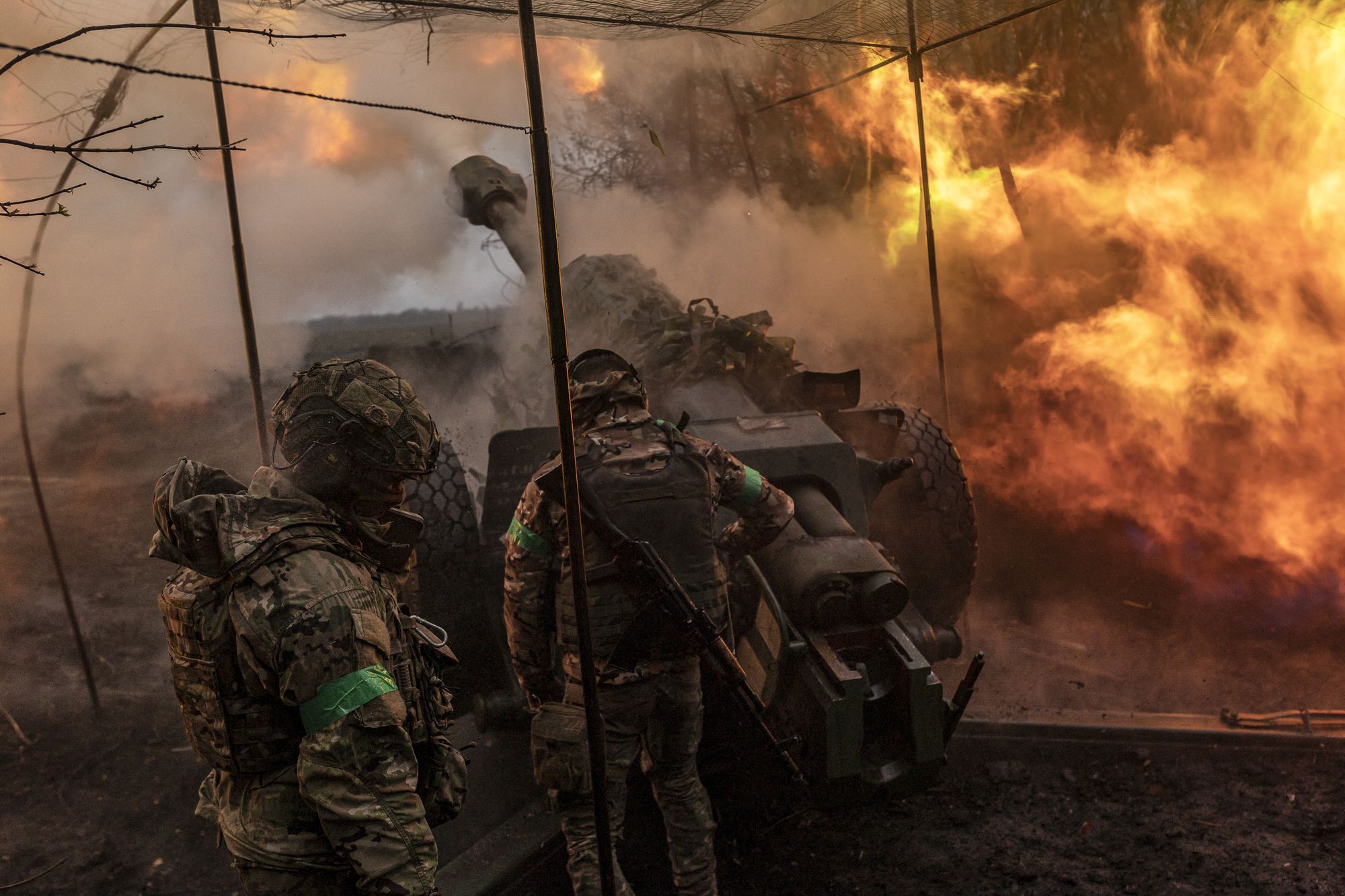Ukraine war latest: Russia intensifies Bakhmut assault; 2-year-old killed in Russian missile strike (GRAPHIC)

Editor's note: This story contains graphic images that some readers may find uncomfortable.
Key developments on April 14:
- UK Defense Ministry: Russia 're-energized' assault on Bakhmut as the Kremlin and Wagner improve cooperation
- Ukrainian army rejects Russia's claim of being surrounded in Bakhmut, says fierce fighting continues on the streets
- Authorities: Russian missile strike on Sloviansk kills at least 8, including 2-year-old
- PM Shmyhal: France ready to provide Ukraine with 2 billion euros in financial aid
- Canadian Defense Minister: All 8 Leopard 2 tanks pledged by Canada now in Poland.
Russia has "re-energized" its nine-month-long assault on Bakhmut as the Russian Defense Ministry and the Wagner mercenary group appeared to have improved cooperation, a Western intelligence report said on April 14.
In its daily intelligence bulletin, the U.K. Defense Ministry reported the Ukrainian strongholds in the western part of Bakhmut – a largely destroyed city in Donetsk Oblast that is now the epicenter of the war – have suffered "particularly intense Russian artillery fire over the previous 48 hours."
It added that the Ukrainian forces remaining in Bakhmut "face significant resupply issues" and had to make some "orderly withdrawals" from positions.
The report comes a day after Russia claimed to have surrounded Ukrainian forces in Bakhmut, claiming to have cut off the roads into the city with a pre-war population of 70,000 people.
The Ukrainian military on April 14 dismissed Russia's encirclement claims about Bakhmut, saying that heavy fighting is still raging on the streets, but the Ukrainians are not surrounded.
"When we see that we have reserves and equipment ready, we will make a decision to strike," Serhiy Cherevatyi, spokesperson for Ukraine's eastern military command, said on television, adding that defending Bakhmut allows Ukraine to reduce Russia's offensive potential.
Regarding the ratio of Russian lands captured in Bakhmut, Cherevatyi said it is currently difficult to calculate due to the "dynamic" front-line conditions.
Wagner chief Yevgeny Prigozhin's press service said on April 13 that Ukrainian forces were holding "up to 30%" of Bakhmut, southwest of the city center.
The Institute for the Study of War (ISW), a D.C.-based think-tank analyzing the war in Ukraine, said in its April 12 report that "Russian forces are visually confirmed to control at least 76.5 percent of Bakhmut."
On April 13, the ISW said Russian forces continued to advance in Bakhmut, citing geolocated footage.
"Geolocated footage shows that Russian forces advanced further west into central Bakhmut and made marginal advances in southern and southwestern Bakhmut," the ISW said.
Another fiercely fought-over city in Donetsk Oblast is Marinka, a city with a pre-war population of some 10,000 people located 20 kilometers southwest of the Russian-occupied Donetsk. The city has endured war since 2014, but more intensely since 2022, with much of it now destroyed.
The General Staff of Ukraine's Armed Forces said in its morning briefing on April 14 that "fiercest fighting" continues for Bakhmut and Marinka. The report claimed Russia suffered "major losses" as it kept up its costly offensive in eastern Ukraine.


Intensifying attacks against civilians
Russia intensified its attacks against civilians in eastern Ukraine on April 14.
A Russian missile hit a five-story building in the city of Sloviansk, one of the few central hubs in Donetsk Oblast that remain under Ukrainian control.
As of late evening, Donetsk Oblast Governor Pavlo Kyrylenko said on television that at least eight people were killed and 21, including a 14-year-old girl, were wounded in the missile attack.
The Prosecutor General's Office said that among the killed was a two-year-old girl.
According to preliminary data, Russian forces launched S-300 missiles at Sloviansk at 4:00 p.m. local time. The repurposed air defense missiles are known for their inaccuracy and have become Russia's weapon of choice for attacks on cities at this range.
President Volodymyr Zelensky condemned the attack, saying that "the invaders brutally bombed the city."
Pledging that his country "will not leave any enemy unpunished," Zelensky said that "the evil state once again demonstrates its essence."
"Just killing people in broad daylight – ruining, destroying all life," Zelensky said in his Telegram post.
Military aid
France is ready to provide Ukraine with 2 billion euros (about $2.2 billion) as part of a long-term program, Ukrainian Prime Minister Denys Shmyhal said after his meeting with French Economy Minister Bruno Le Maire.
Earlier on April 12, Shmyhal said that the World Bank would provide Ukraine with an additional $200 million in aid to restore its energy infrastructure, damaged by Russia's targeted attacks to take out Ukraine's power grid during winter.
On April 14, Canadian Defense Minister Anita Anand also announced that all eight Leopard 2 tanks pledged by Ottawa have arrived in Poland.
Ukraine has already received a few dozen of the Leopards after Germany approved its transfer to Kyiv and for other countries to follow suit in late January.
Anand did not say when the Leopards would arrive in Ukraine.

Earlier in April, German Defense Minister Boris Pistorius told German newspaper Die Welt that NATO countries planned to send two battalions of German Leopard 2 battle tanks and four battalions of Leopard 1 tanks to Ukraine – which adds up to a total of 160.
The 160 tanks account for roughly half the 300 tanks requested by Ukraine for its anticipated spring counteroffensive.












